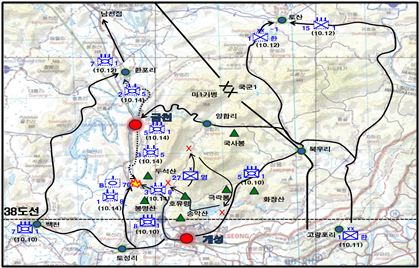A historical evaluation of the Battle of Pyongyang in the Korean War through a tactical fault analysis
DOI:
https://doi.org/10.37944/jams.v4i1.97Keywords:
Korean War, battle of Pyongyang, battle of Geumcheon, battle of Sariwon, U.N. forces’ advance to PyongyangAbstract
The purpose of this study is to consider the ‘Battle of Pyongyang’ of the I Corps during the Korean War from the historical point of view. This study argues that there are some limit to the U.N. military’s ‘Battle of Pyongyang’ that it failed to maximize the benefits of recapturing Pyongyang, the capital of North Korea. And this can be evidenced by some notable tactical faults that the 1 Corps has caused in ‘Battle of Pyongyang’. First, the I Corps (America’s First Corps) excessively delayed its time during the ‘Battle of Pyongyang’. Second, the 24th U.S. Infantry Division was excluded from the ‘Battle of Pyongyang’ and failed to concentrate its combat capabilities. Third, I Corps did not besiege the North Korean army, and North Korean could escape from Pyongyang. The I Corps was fiercely competitive to arrive in Pyongyang first, and failed to make efforts to contribute to higher-level operations. In conclusion, this study finds some lesson from the I Corps’s tactical faults behind the glory of ‘Battle of Pyongyang’.
Metrics

Downloads
Published
How to Cite
Issue
Section
License
Copyright (c) 2021 Journal of Advances in Military Studies

This work is licensed under a Creative Commons Attribution 4.0 International License.

This work is licensed under a Creative Commons Attribution 4.0 International License.

이 저작물은 크리에이티브 커먼즈 저작자표시 4.0 국제 라이선스에 따라 이용할 수 있습니다.






